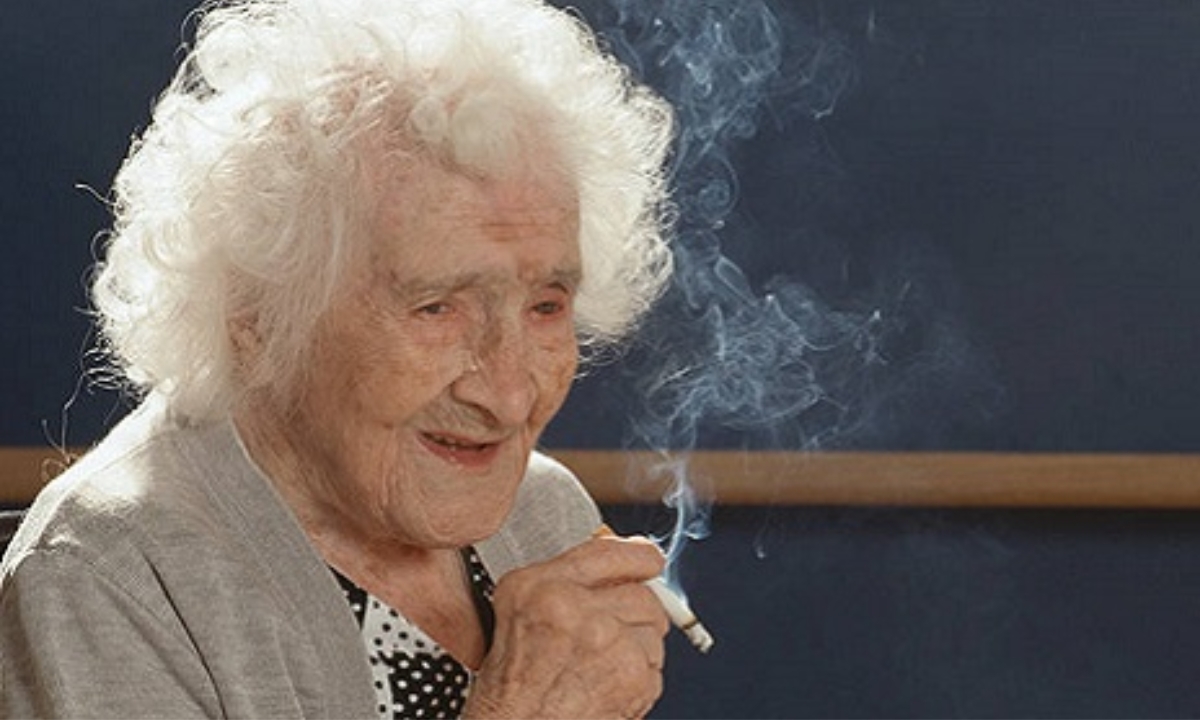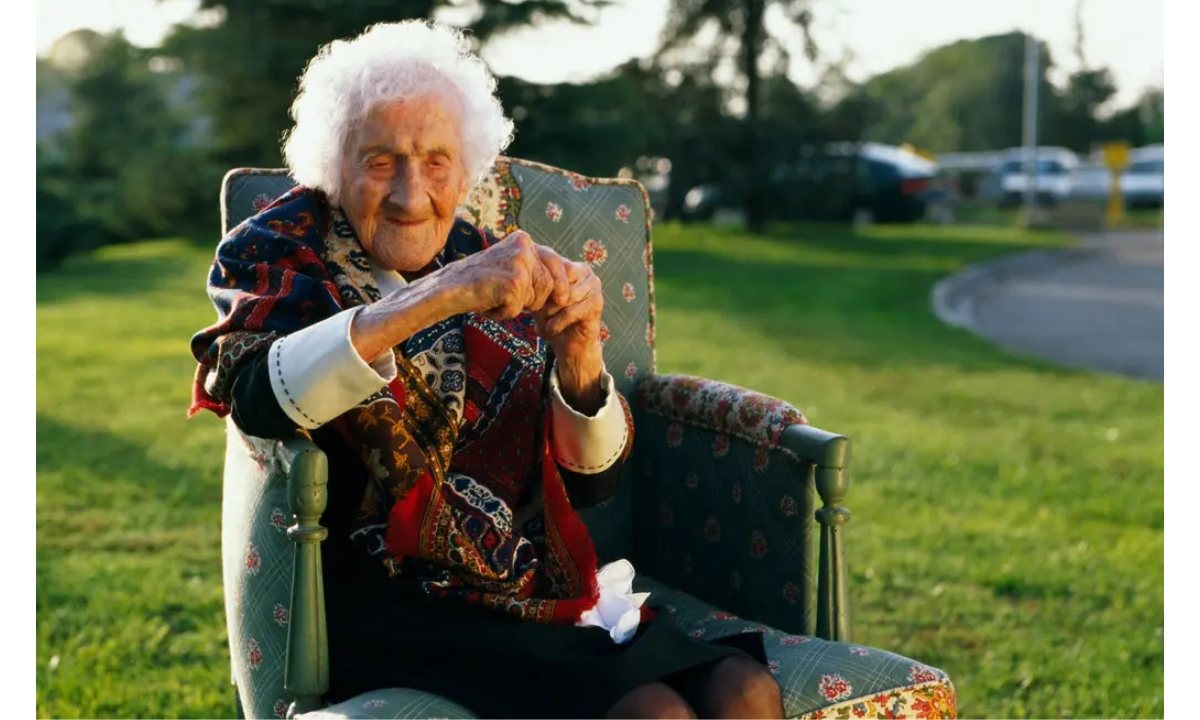In the annals of human history, few achievements captivate our imagination quite like the quest for longevity. The human record for the oldest age ever reached stands at a staggering 122 years, a milestone that has fascinated scientists, historians, and the general public alike.
This article delves deep into the extraordinary life of the record holder, explores the evolution of longevity records, and examines the factors that contribute to breaking the boundaries of human lifespan.
THE CURRENT RECORD HOLDER
The title of the oldest person ever recorded belongs to Jeanne Louise Calment, a French woman whose life spanned three centuries. Born on February 21, 1875, in Arles, France, Calment lived through an astonishing 122 years and 164 days before passing away on August 4, 1997. Her remarkable journey through time witnessed the invention of the telephone, two world wars, and the dawn of the internet age.
Calment’s life was as colorful as it was long. Some fascinating facts about her include:
- She met Vincent van Gogh in her youth, describing him as “dirty, badly dressed, and disagreeable.”
- She took up fencing at 85 and still rode a bicycle at 100.
- Calment attributed her longevity to olive oil, port wine, and a diet rich in chocolate.
- She smoked cigarettes until the age of 117, quitting not for health reasons but because she could no longer see well enough to light them.
- Calment outlived her daughter and grandson, a testament to her exceptional longevity.
The Guinness World Records meticulously verified Calment’s age, making her the undisputed holder of the longest human lifespan on record. Her life serves as a beacon of human endurance and adaptability, challenging our preconceptions about aging and vitality.
The Current Record Holder for Exceeding 122 in Human Records
As of 2024, no one has surpassed Jeanne Calment’s record of 122 years. The closest contenders in recent years have included:
- Kane Tanaka (Japan) – 119 years, 107 days
- Sarah Knauss (USA) – 119 years, 97 days
- Lucile Randon (France) – 118 years, 340 days
- Nabi Tajima (Japan) – 117 years, 260 days
- Marie-Louise Meilleur (Canada) – 117 years, 230 days
These remarkable individuals have come close to breaking records, but Calment’s longevity remains unmatched. The endurance of this record speaks volumes about the rarity of such extreme longevity and the complex factors that contribute to a supercentenarian lifespan.
It’s worth noting that each of these individuals lived through significant historical events and technological advancements. Their lives serve as living time capsules, offering unique perspectives on the rapidly changing world of the 20th and early 21st centuries.
HOW THE RECORD HAS EVOLVED OVER TIME
The journey to 122 years has been a gradual progression marked by significant milestones in human longevity. Here’s a timeline showcasing the evolution of longevity records:
| Year | Name | Country | Age | Notable Events |
| 1857 | Thomas Peters | Norway | 99 | American Civil War begins (1861) |
| 1897 | Geert Adriaans Boomgaard | Netherlands | 110 | X-rays discovered (1895) |
| 1928 | Delina Filkins | USA | 113 | Discovery of penicillin |
| 1965 | William Fullingim | USA | 115 | First human in space (1961) |
| 1990 | Jeanne Calment | France | 115 | Fall of the Berlin Wall (1989) |
| 1997 | Jeanne Calment | France | 122 | Cloning of Dolly the sheep |
This progression reflects not only individual achievements but also advancements in medical science, nutrition, and overall quality of life. The New York Times and other publications have extensively covered these milestones, highlighting the growing interest in human potential and longevity.
The steady increase in maximum recorded age over time suggests that improvements in healthcare, nutrition, and living conditions have played a significant role in extending human lifespan. However, the plateau we’ve seen since Calment’s record indicates that we may be approaching the natural limits of human longevity, at least under current conditions.
FACTORS THAT CONTRIBUTE TO BREAKING THE RECORD
Several key factors play a role in extending human lifespan and potentially breaking boundaries in longevity:
- Genetics:
- Studies suggest that about 25% of the variation in human lifespan is attributed to genetic factors.
- Certain genes, like FOXO3, have been associated with longevity in multiple populations.
- Lifestyle Choices:
- Diet: Mediterranean and Okinawan diets are associated with longevity. These diets are rich in fruits, vegetables, whole grains, and lean proteins.
- Exercise: Regular physical activity reduces the risk of age-related diseases. Even moderate exercise, like brisk walking for 30 minutes a day, can have significant benefits.
- Stress Management: Chronic stress accelerates cellular aging. Practices like meditation, yoga, and mindfulness can help mitigate stress effects.
- Social Connections: Strong social ties and a sense of community have been linked to increased longevity.
- Environmental Factors:
- Clean air and water: Reduced exposure to pollutants can significantly impact long-term health.
- Access to green spaces: Regular contact with nature has been shown to reduce stress and improve overall health.
- Low exposure to pollutants: Minimizing contact with industrial chemicals and other environmental toxins can protect cellular health.
- Climate: Some studies suggest that moderate climates may contribute to longevity.
- Healthcare and Medical Technology:
- Advanced treatments for age-related diseases: Breakthroughs in cancer treatment, cardiovascular health, and neurodegenerative diseases are extending lifespans.
- Preventive medicine and early detection of health issues: Regular check-ups and screenings can catch potential health problems before they become serious.
- Potential future interventions in the aging process itself: Research into senescent cells, telomere lengthening, and other anti-aging therapies may open new frontiers in longevity.
Research continues to unravel the complex interplay of these factors, offering hope for extending the boundaries of human lifespan. As our understanding deepens, we may discover new ways to not just extend life, but to improve the quality of those additional years.
The Dispute over the Record
Despite rigorous age verification processes, Jeanne Calment’s record has not been without controversy. Some researchers have questioned the validity of her claim, suggesting the possibility of identity fraud. The main arguments include:
- Inconsistencies in some of her recollections
- The unusual gap between her claimed age and the next oldest verified person
- Lack of certain documents from her early life
- The hypothesis that Calment’s daughter, Yvonne, may have assumed her mother’s identity
However, proponents of Calment’s claim point to:
- Extensive documentation throughout her life, including census records, marriage certificates, and consistent appearances in local records
- Consistent recollections of historical events that align with her purported timeline
- Recognition by local officials throughout her lifetime
- The improbability of maintaining such a complex deception over many decades
The debate underscores the importance of thorough age verification in establishing longevity records. It also highlights the challenges in confirming extreme age claims, especially those predating modern record-keeping practices.
In response to the controversy, the Gerontology Research Group and other organizations have strengthened their verification processes. These now include more rigorous document checks, interviews with family members and acquaintances, and, when possible, genetic testing to confirm familial relationships.
Why It Is Crucial to Acknowledge and Commemorate Accomplishments in Old Age
Celebrating achievements like Calment’s 122-year lifespan serves multiple purposes:
- Inspiration: Stories of centenarians inspire younger generations to aspire to healthy aging. They provide living proof that a long, active life is possible, motivating others to make healthier choices.
- Scientific Value: Studying supercentenarians provides valuable insights into the aging process. Researchers can identify genetic, environmental, and lifestyle factors that contribute to exceptional longevity.
- Societal Impact: Recognizing the potential for longer lifespans influences policy-making and healthcare planning. It prompts discussions about retirement age, healthcare systems, and social support for the elderly.
- Cultural Significance: Extreme longevity challenges our perceptions of aging and human limitations. It encourages a reevaluation of what’s possible in later life, potentially reducing ageism.
- Economic Considerations: Understanding the potential for longer lifespans has implications for pension systems, workforce planning, and the development of products and services for older adults.
As we push the boundaries of human potential, these records become benchmarks for what’s possible, encouraging further research and personal health initiatives. They also prompt important ethical discussions about the nature of aging and the pursuit of extended lifespans.
Oldest Person Alive or Marathon Runner at 100 Years Old—The Oldest on Record
While the age of 122 remains the pinnacle, other age-related achievements continue to inspire:
- Oldest Person Alive: As of 2024, this title is held by María Branyas Morera of Spain, born on March 4, 1907. She has lived through two world wars, the Spanish Civil War, and multiple pandemics, including COVID-19.
- Oldest Marathon Runner: Fauja Singh completed the Toronto Waterfront Marathon at age 100 in 2011. He began his running career at the age of 89 and has since completed nine marathons.
- Oldest College Graduate: Nola Ochs earned a history degree from Fort Hays State University at 95 in 2007. She went on to complete a master’s degree at 98, proving that learning is truly a lifelong pursuit.
- Oldest Person to Climb Mount Everest: Yuichiro Miura of Japan reached the summit at age 80 in 2013. He had previously set the record at ages 70 and 75.
- Oldest Olympic Medalist: Oscar Swahn of Sweden won a silver medal in shooting at the 1920 Olympics at the age of 72. He remains the oldest Olympic medalist in history.
These accomplishments demonstrate that age need not be a barrier to achieving remarkable feats, further expanding our understanding of human potential. They challenge societal norms about aging and capability, inspiring people of all ages to pursue their passions and set ambitious goals.
122 Is The Record for Humans NYT: Breaking Down the Numbers
The age of 122 achieved by Jeanne Calment is extraordinary when contextualized:
- It’s nearly 50% longer than the current global life expectancy of about 82 years.
- Calment lived through 22 U.S. presidencies and 3 centuries.
- Her lifespan was longer than the entire history of some nations.
- She witnessed the invention of the telephone, television, and the internet.
- Calment lived through both World Wars, the Cold War, and the fall of the Soviet Union.
Statistically, the odds of reaching such an advanced age are infinitesimal. The New York Times reported that the chances of living to 110 are about 1 in 7 million. The probability of reaching 122 is even more remote, making Calment’s achievement truly exceptional.
To put it in perspective:
- Only about 1 in 1,000 people live to be 100.
- The chances of reaching 110 (becoming a supercentenarian) are about 1 in 7 million.
- The likelihood of living to 122 is so low that it’s difficult to calculate accurately.
These statistics underscore the rarity of Calment’s achievement and highlight why her record has stood for so long.
Longevity Records
Beyond individual age records, other longevity records captivate our imagination:
- Longest Marriage: Zelmyra and Herbert Fisher were married for 86 years and 290 days, from May 13, 1924, until February 27, 2011. Their union spanned the Great Depression, World War II, and the Civil Rights Movement.
- Oldest Parents: María del Carmen Bousada de Lara gave birth to twins at 66 years and 358 days old in December 2006. She sparked controversy and ethical debates about the limits of reproductive technology.
- Longest Career: Brazilian Manoel de Oliveira had a 75-year career as a film director. He directed his last film at the age of 105, demonstrating that creativity and productivity can extend well into advanced age.
- Longest Time Between Olympic Appearances: Durward Knowles of the Bahamas competed in eight Olympics over a span of 40 years, from 1948 to 1988, in sailing events.
These records not only showcase individual achievements but also challenge societal norms about aging and capability. They demonstrate that longevity can extend beyond mere survival to encompass active, productive, and meaningful lives well into advanced age.
Some Other Remarkable Human Records
The pursuit of breaking records extends beyond mere longevity. Here are some age-related Guinness World Records that demonstrate the extraordinary capabilities of older adults:
- Oldest Person to Climb Mount Everest: Yuichiro Miura of Japan, at age 80, reached the summit on May 23, 2013. His achievement showcases the potential for extreme physical feats even in advanced age.
- Oldest Olympic Gold Medalist: Oscar Swahn of Sweden, who won gold in shooting at age 64 in the 1912 Olympics. He went on to compete in the 1920 Olympics at age 72, winning silver.
- Oldest Person to Swim the English Channel: Otto Thaning of South Africa, at age 73, completed the grueling 21-mile swim in 12 hours and 52 minutes on September 6, 2014.
- Oldest Person to Reach the North Pole: Dorothy Davenhill Hirsch of the USA reached the North Pole at the age of 89 years and 109 days on April 24, 2004.
- Oldest Person to Discover a Comet: Robert Holmes of the USA discovered a comet at the age of 85 years and 170 days on July 19, 2021, proving that scientific breakthroughs can happen at any age.
These achievements underscore the vast potential for accomplishment well into advanced age, continually redefining our understanding of human potential. They serve as powerful reminders that age should not be a barrier to pursuing one’s passions or setting ambitious goals.
Conclusion
The record of 122 years set by Jeanne Calment remains a testament to the extraordinary possibilities of human lifespan. As we continue to push the boundaries of longevity, this milestone serves as both an inspiration and a challenge. Will we see this record broken in our lifetime? Only time will tell.
What’s certain is that the pursuit of longevity and the celebration of age-related achievements will continue to captivate us. These human records not only showcase individual triumphs but also drive scientific research, influence social policies, and reshape our understanding of aging.
As we look to the future, let’s remember that every day we live is an opportunity to make our mark, regardless of our age. Who knows? The next record breaker might be reading this very article.
Also Read : Is Bowie Jane Married?
Is Bowie Jane Married? Bowie Jane Net Worth, Wiki, Career, Personal life, And More

Howdy is the founder and lead writer behind the independent blog tvspluto.com

